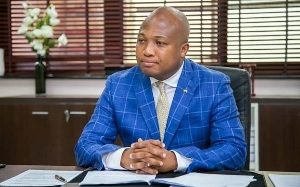Russia has been chosen to host the 2018 World Cup and Qatar has been selected to stage the 2022 tournament.
The Russian bid was picked ahead of England, Spain-Portugal and Holland-Belgium to host the 2018 event.
Qatar got the better of the United States, Australia, Japan and South Korea to stage in 2022.
Both decisions were made on Thursday following a secret ballot of football's world governing body Fifa's 22 executive members in Zurich. Russia received nine votes in the first round of voting and an outright majority of 13 in the second round, while Qatar obtained an outright majority of 14 in the fourth round of voting for 2022.
It is the first time that either Russia or Qatar has been chosen as host nation for the World Cup.
"You have entrusted us with the Fifa World Cup for 2018 and I can promise, we all can promise, you will never regret it," said Russian deputy prime minister Igor Shuvalov. "Let us make history together."
Russia's selection comes despite the absence of Prime Minister Valdimir Putin from the vote in Switzerland.
The 58-year-old had been expected to be a prominent figurehead for the Russian bid in the final days of campaigning but instead remained in Moscow. He is now expected to fly to Zurich to thank Fifa for what he described as "a sign of trust" for his country.
"I would like to assure the Fifa leadership that we will do everything possible to ensure that the 2018 football World Cup is staged at a deserving level," he added in a televised interview.
Qatar's Emir, Sheikh Hamad bin Khalifa Al-Thani was in attendance in Zurich, and he thanked Fifa for "believing in change".
The tiny oil-rich Gulf state, with a population estimated to be around 1.7m, will be the first Middle Eastern country to host a major sporting event, and a central crux of their bid centred around boosting the region's global profile. With the country's economy expected to grow by 15.5% this year and soar by 21% in 2011, Qatar is expected to spare no expense in constructing stadiums for the event, with the total cost of construction work expected to be around £3 billion.
Under the proposals submitted to FIFA, Qatar would renovate three stadiums and build nine new ones, with the 12 venues divided among seven host cities. The country has also launched a huge spending policy in recent years to accommodate it's growing population, splashing out billions on rail, air and road links.
In response to concerns that the tournament would be held when temperatures in the country typically exceed 48C, the Qatar bid team pointed out that World Cups in Mexico 1986 and United States 1994 also faced massive heat and both were considered successes.
Russia's plan for improving facilities in host cities are also in line with Fifa's long-term plans for developing the sport, especially in regions with outdated infrastructure.
Russia has proposed staging the tournament in 13 cities, grouped into four clusters that stretch from exclave of Kaliningrad on the borders of the European Union to Yekaterinburg in the Urals on the fringe of Siberia.
Putin's promise to scrap visa's was seen as crucial to his country's prospects of winning the vote as nationals of almost all countries outside the former Soviet Union require the paperwork to visit Russia.
There have been concerns that Russia's vast size, it's remoteness from other countries and what is seen as a relatively weak transport system could make travelling around the country problematic.'
All the host cities are in the European region of the country and Putin has promised that fans will be able to travel on public transport for free during the event.
Sports News of Thursday, 2 December 2010
Source: BBC
Russia & Qatar will host the 2018 and 2022 World Cups
Entertainment















